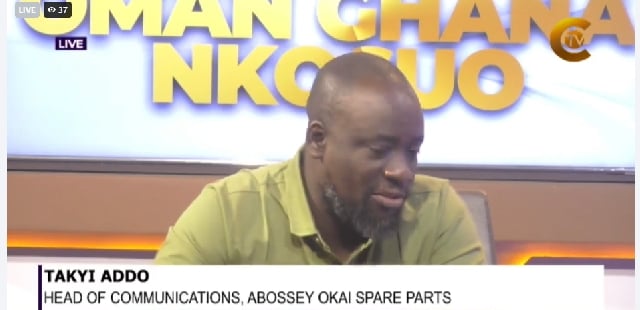The Abossey Okai Spare Dealers Association, a prominent collective of automotive spare parts traders in Ghana’s Greater Accra Region, has expressed confidence in President John Dramani Mahama’s administration and its commitment to implementing a fixed-rate system for spare parts imports. This system, a key policy initiative, aims to stabilize import duties, thereby reducing the unpredictable fluctuations that have long plagued the industry. The Association believes this will lead to significant cost savings for traders, particularly by minimizing demurrage charges, which accrue when goods are delayed at ports. This endorsement signifies a vote of confidence in the government’s economic policies and their potential to positively impact the spare parts sector. The Association’s Head of Communications, Mr. Takyi Addo, has been a vocal proponent of this fixed-rate system and has actively engaged with the government to advocate for its implementation.
Mr. Addo’s involvement in the policy’s development goes back to the presidential campaign, where he personally presented the fixed-rate concept to then-candidate John Mahama. He underscored the potential advantages of such a system for the spare parts industry, emphasizing its potential to streamline import processes and reduce the financial burdens on traders. This proactive approach highlights the Association’s commitment to engaging with policymakers to shape policies that directly impact their businesses. The Association’s satisfaction extends to the cabinet appointments within the Mahama administration, specifically highlighting key ministerial positions related to their trade, including the Ministries of Finance, Transport, and Trade. This suggests a belief that the individuals heading these ministries possess the necessary expertise and understanding to effectively implement and manage the fixed-rate system.
Interestingly, while the spare parts dealers now express strong support for President Mahama’s fixed-rate policy, there was an initial inclination towards a similar flat-rate system proposed by Dr. Mahamudu Bawumia. Mr. Addo revealed that a vast majority of the Association, nearly 99%, had favored Bawumia’s proposal during the campaign period. He, however, remained among the few who advocated for Mahama’s approach. This initial division within the Association underscores the complex political landscape and the diverse opinions within the trading community regarding economic policies. Despite the initial preference for Bawumia’s plan, the Association has now consolidated its support behind Mahama’s policy, demonstrating a willingness to adapt and support policies deemed beneficial to the industry, regardless of political affiliations.
Mr. Addo clarified that his support was always focused on the concept of a fixed or flat-rate system itself, irrespective of the political party proposing it. He believed that the core principle of stabilizing import duties was crucial for the long-term health and stability of the spare parts sector. This principled stance reflects a focus on pragmatic solutions rather than strict adherence to party lines, prioritizing the practical benefits for the industry over political considerations. His emphasis on the policy’s potential benefits transcends political divides, demonstrating that the pursuit of a stable and predictable import regime is a shared goal within the industry. This pragmatism is vital for achieving consensus and driving positive change within the sector.
The Association’s leadership is now urging its members to exercise patience and restraint as the government navigates the complexities of implementing the fixed-rate system. They acknowledge that such significant policy changes require time and careful consideration to ensure effective implementation. This call for patience underscores the Association’s understanding of the challenges associated with policy implementation and their willingness to work collaboratively with the government to achieve their shared objectives. They project that the full benefits of the policy will become evident within two years, emphasizing the long-term vision for the industry’s growth and stability.
The anticipated positive impact of the fixed-rate system includes not only stabilized import duties and reduced demurrage costs but also a more predictable and stable business environment for spare parts traders. This predictability allows for better planning, reduces financial risks associated with fluctuating import costs, and ultimately contributes to the overall growth and prosperity of the spare parts sector. By fostering a more stable and predictable market, the policy aims to encourage investment, promote competition, and ultimately benefit consumers with more stable prices and a wider selection of spare parts. This comprehensive approach to policy implementation considers the interconnectedness of various factors within the industry, aiming to create a sustainable and thriving marketplace for all stakeholders.


